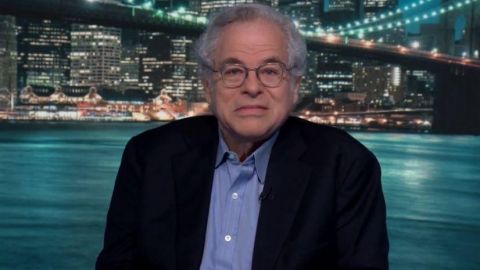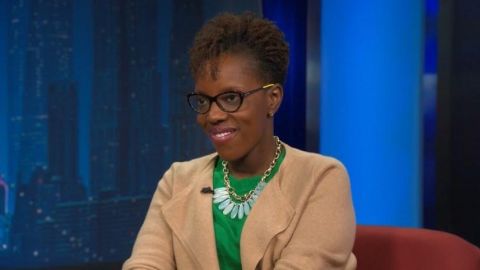Read Transcript EXPAND
CHRISTIANE AMANPOUR: Well, how do you read the words coming out of the U.S. today on this?GERARD ARAUD, FORMER FRENCH AMBASSADOR TO THE UNITED
STATES: Now, I think President Trump has always been very consistent. He doesn’t want war, but he considers that the policy of maximum pressure will bring the Iranians to a negotiation. I think it is — it’s not — he is not wrong. You know, a negotiation is based on a balance of power, the Americans have always — have the upper hand. They are accepting a very strong pressure. So, we could hope that U.S. and the Iranians could come to a negotiation. But it would work only if we have a diplomacy, if we have a diplomatic path, and that’s what is strategically missing right now.
AMANPOUR: Well, as you say, let me just repeat for you the Middle East expert, Vali Nasr, has written in the “New York Times,” “President Trump may not want war, but he will get one unless he balances coercion with diplomacy. Tehran has met maximum pressure with maximum resistance. The only option left is to talk.” I mean, it’s kind of what you just said, but how? How does one get a path to talk through this war of words and, indeed, this attack on shipping, the downing of the drone which, as you know, Iran says was in its own air space, over its waters?
ARAUD: No. I think you’re perfectly right. We are in a very dangerous moment. We are really at the mercy of any incident. And we know that on both sides you have radicals actually are looking for a war. So, again, how can we create a diplomatic dialogue between the Americans and the Iranians? Which would mean on the American side that, in a sense, they tell precisely what they want. Because on the American side, we have 12 maximum demands. It’s obvious that Iranians are not going to accept the 12 — these 12 overnight. So, what is the sequence of these demands and what the Americans are ready to give to the Iranians, because in any negotiation, you have to give something. And again, for the moment, nobody on the American side has been able to express it.
About This Episode EXPAND
Adel al-Jubeir speaks with Christiane Amanpour about Jamal Khashoggi’s murder. Gerard Araud joins the program to discuss the role of America’s European allies in tense Iran-U.S. relations. Violinist and conductor Itzhak Perlman joins Christiane to discuss the next generation of violinists. Alicia Menendez speaks with Aisha Nyandoro, CEO of Springboard To Opportunities.
LEARN MORE



